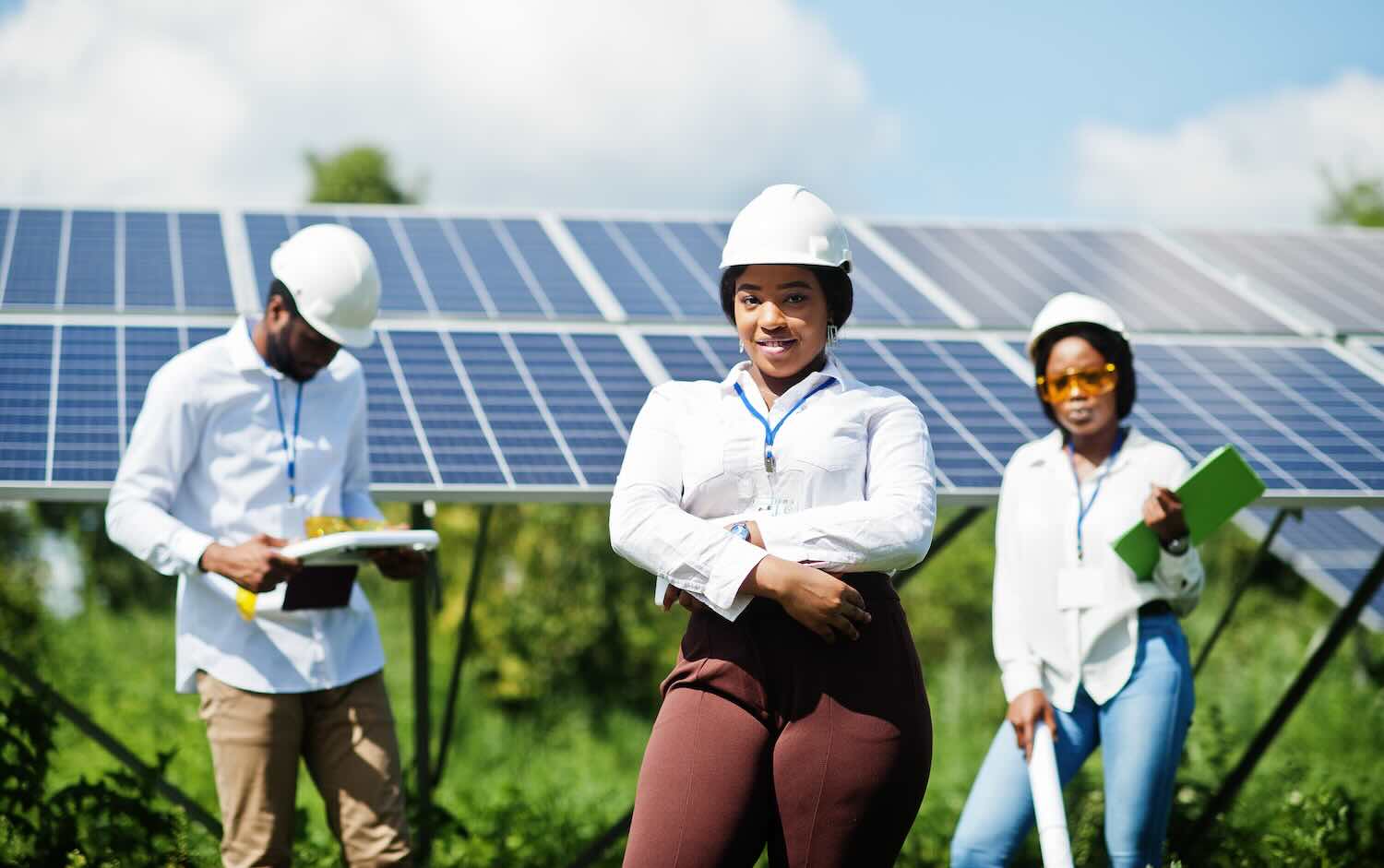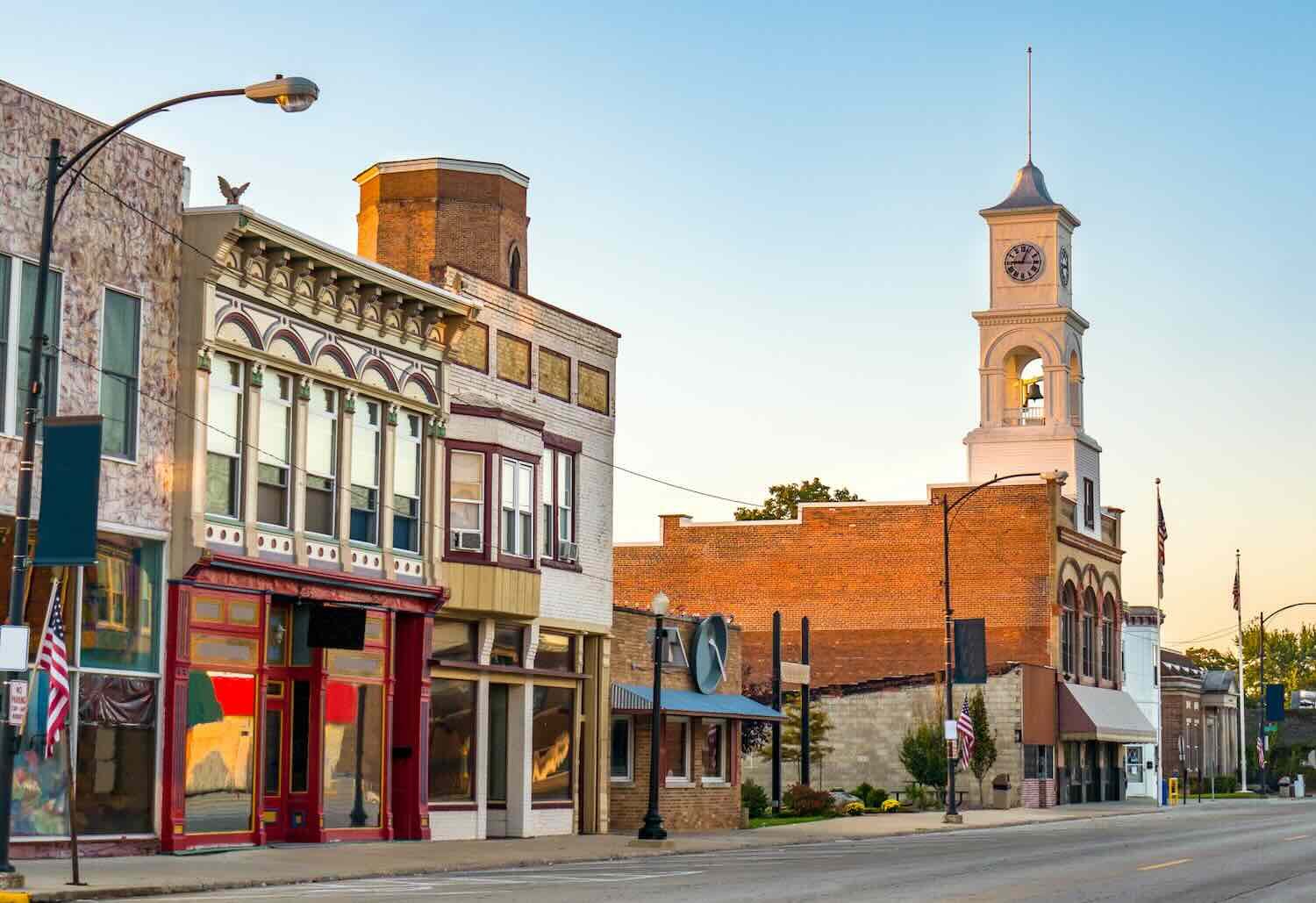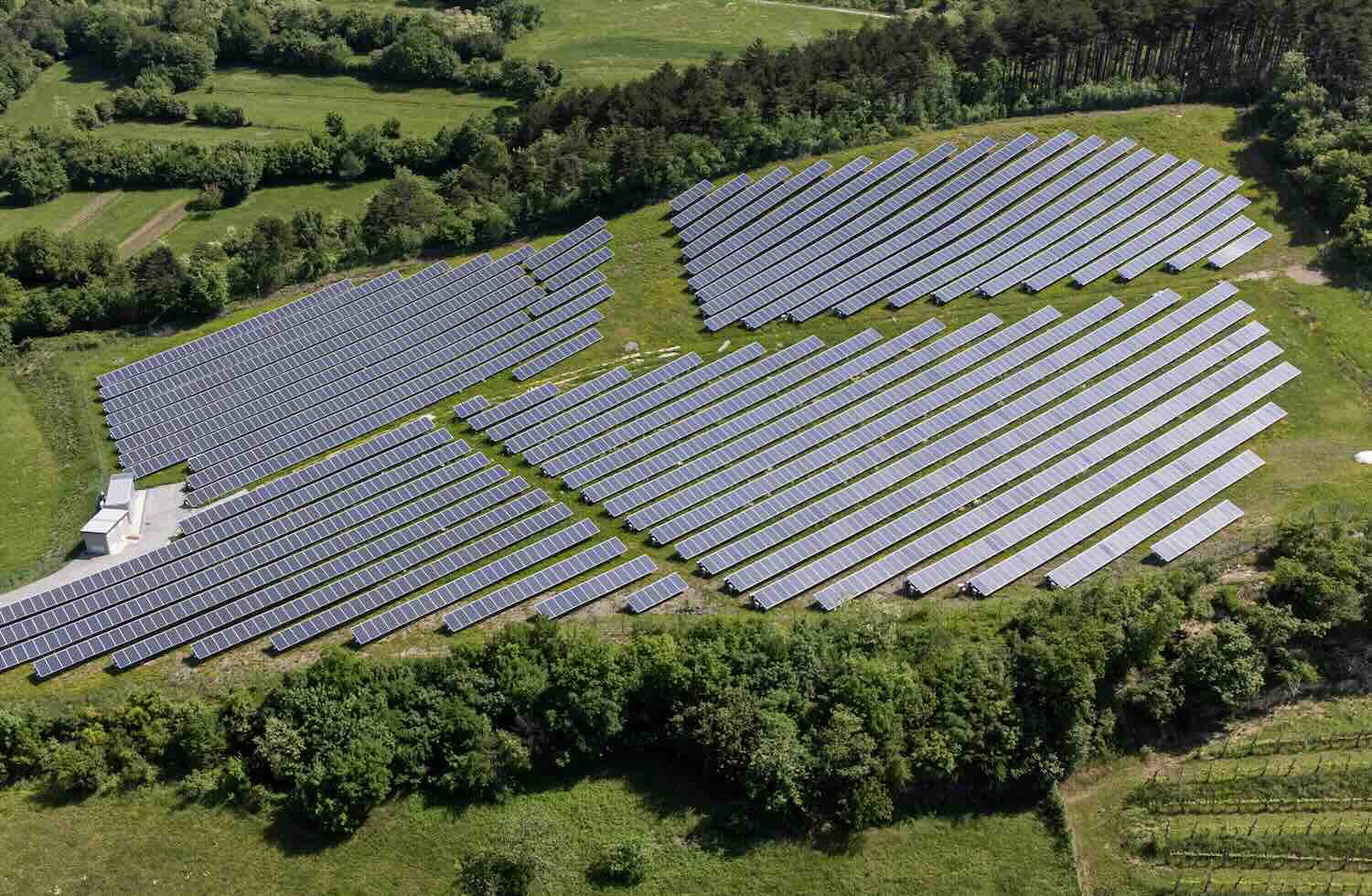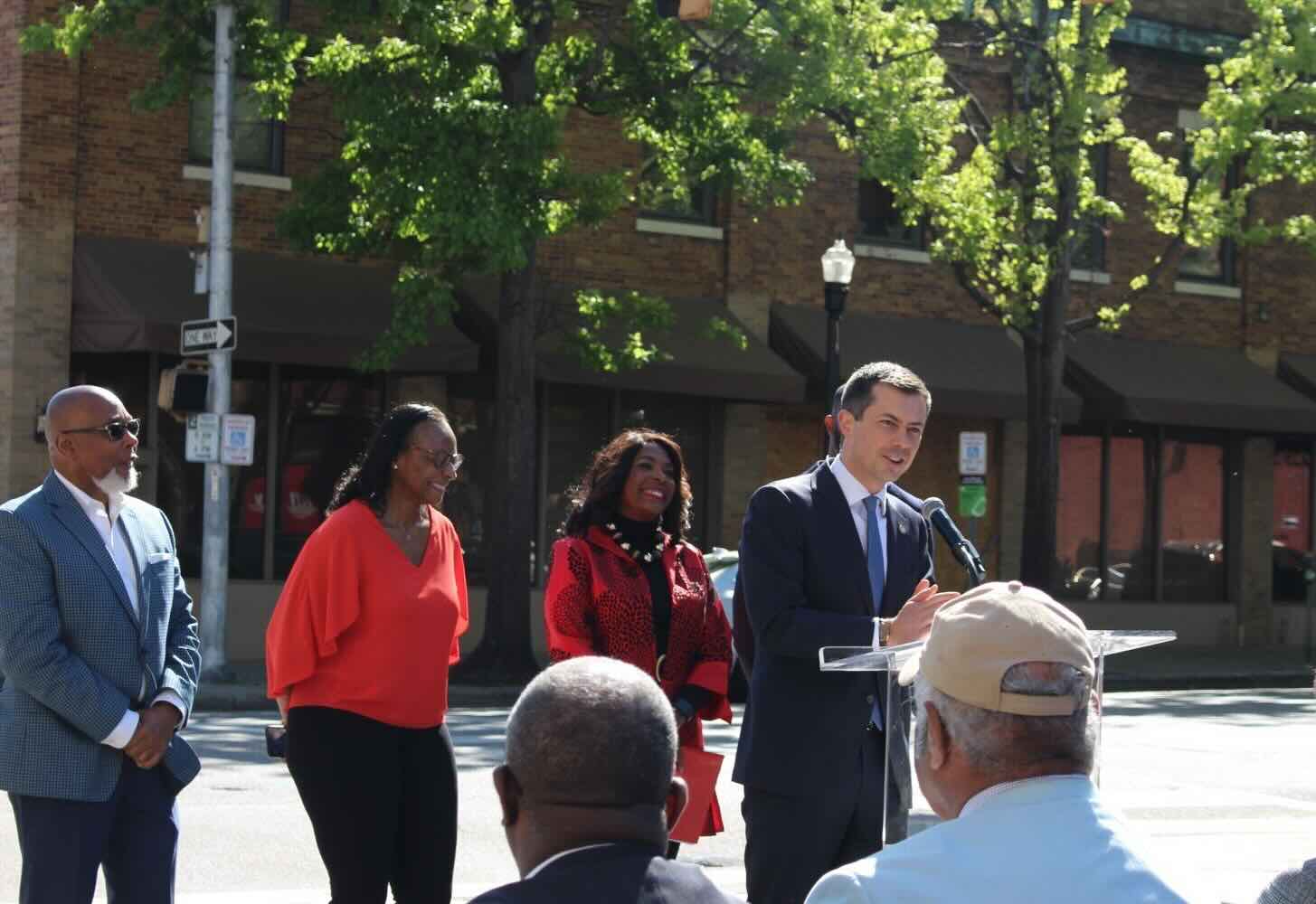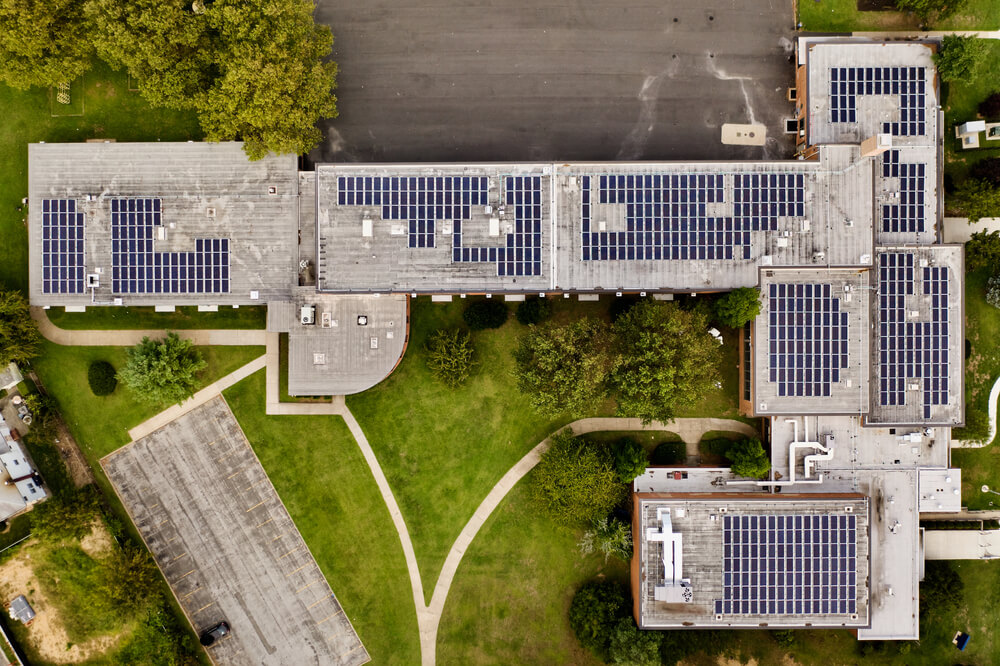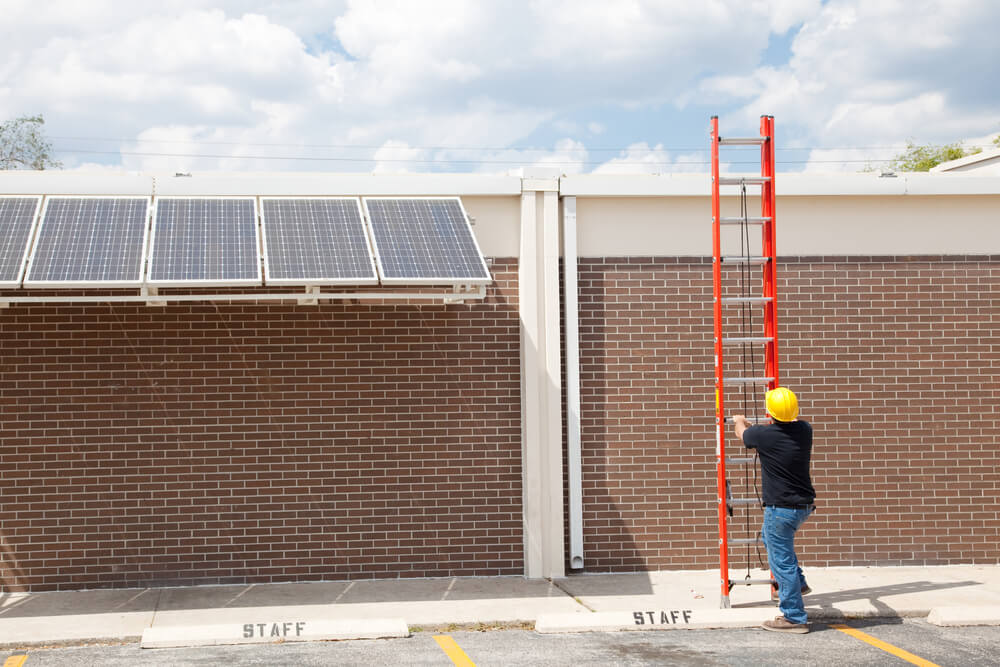ImpactAlpha, December 17 – When the Federal Highway Administration last week announced $623 million in grants to install public charging stations for electric vehicles across the country, fully half of the funds went to community-driven projects in underserved neighborhoods.
The three dozen projects ranged from a $1.4 million grant to help the Chilkoot Indian Association build a charging station in Haines, Alaska, to $15 million to a Maryland partnership to support EV charging at a historically Black college, multi-family housing complexes in Baltimore and other capital-starved communities.
Three years after President Joe Biden signed an executive order promising to prioritize underserved communities in an ambitious reimagining of federal spending, those communities are stepping up to jumpstart projects that can create good jobs, reduce pollution and build economic and climate resilience.
Biden’s executive order launched the Justice40 initiative, directing that 40% of the benefits of key federal funding programs flow to historically marginalized communities. The once-in-a-generation opportunity won’t last forever.
“As we take advantage of this historical amount of federal funding, we have to make sure that the benefits are broad based and really impact underserved communities of color,” Cleveland Mayor Justin Bibb told ImpactAlpha. “We have a short amount of time to really maximize this historic federal investment in American cities.”
Cleveland, a majority Black city with high poverty and energy burden levels, is the kind of community the Justice40 directive is intended to help. The city has used federal funds to invest in workforce development to train residents for jobs installing solar panels, weatherizing homes and laying broadband, said Bibb. Via a partnership with a local nonprofit, the city was awarded some $500 million from the American Rescue Plan to redevelop brownfields, attract employers and create quality jobs. “We couldn’t have made that investment without a direct stimulus going to us from the federal government,” said Bibb, who also chairs the bipartisan Climate Mayors.
A northeast Ohio agency will install EV chargers in public places including libraries, community centers and parks in Cleveland and surrounding areas as part of last week’s Federal Highway Administration grants.
Capacity building
The Justice40 directive, which spans 518 programs across 19 federal agencies, complements the historic trifecta of legislation representing hundreds of billions of dollars for reshoring critical industries, building climate-smart infrastructure and reducing emissions. The Inflation Reduction Act, or IRA, the bipartisan infrastructure law and the CHIPS and Science Act provide incentives for locating projects in low-income neighborhoods, paying living wages and using union labor or apprentices. They also require contractually binding community benefit agreements.
Given the complexity of navigating the laws, nonprofits are standing up intermediaries to help frontline communities access the historic funding. “This happens to be a very unique opportunity, a moment in time where we have trillions of dollars that are flowing from the federal government in a more intentional and deliberate way,” said Christina Cummings with The Solutions Project in Oakland, Calif., which provides grants to “accelerate a just transition to a regenerative economy.”
The Solutions Project teamed with the Partnership for Southern Equity in Atlanta and Chicago-based Elevate to create the Justice40 Accelerator to help frontline communities make the best use of the federal funds. The accelerator has helped dozens of community-led projects secure a total of $43 million in public funding for climate solutions.
The largest award was a $10 million EPA grant to the nonprofit Blacks in Green to serve as a Environmental Justice Thriving Communities Technical Assistance Center on the south side of Chicago. The West Georgia Farmers Cooperative won $1.1 million in three grants from the US Department of Agriculture.
The Justice40 Accelerator provides technical assistance and $25,000 grants to help local groups apply for federal funds and cover other upfront costs. Much of the federal funding comes in the form of reimbursements, so the accelerator has launched a revolving loan fund to tide project developers over until they receive the public funds.
Tracking progress
The scale and complexity of the Justice40 initiative makes it hard not only to apply for funds, but to track them. Some of the funds, especially for newer laws such as the IRA, are just beginning to flow. And it may be years before the full impact is felt. But early tallies and anecdotal evidence show that capital is starting to reach communities where it is badly needed.
A November report by the Clean Investment Monitor analyzing the first 12 months of the Inflation Reduction Act found that 40.5% of overall clean investment went to low-income communities, a greater percentage than the 38.5% of the national population living in them. For solar and storage, 49.8% and 59.1% respectively went to these communities.
Manufacturing investments spurred by the IRA’s 45X Advanced Manufacturing Production Credit have primarily gone to economically disadvantaged counties with below-average wages, household incomes, employment rates, and college graduation rates, according to a recent Treasury Department analysis.
“Justice40 has been instrumental in focusing entrepreneurs and developers on working with frontline communities,” Dawn Lippert of Elemental Excelerator told ImpactAlpha. Among Elemental’s cohort, more than 70% of planned projects, or some 300 projects, are being designed to benefit frontline communities, she said. That compares to about 50% in the past.
Lippert points to Forum Mobility, a San Francisco startup that is electrifying trucks in the nation’s polluted ports. About 39 million people, many in low-income or minority communities live within three miles of a port. Another portfolio company, limestone-based direct air capture developer Origen, is working in partnership with communities across the country.
“We see Justice40 working in terms of bringing entrepreneurs and solutions to frontline communities, but we need much more capacity at the local level in order to accelerate implementation,” said Lippert, who received $1 million from the Rockefeller Foundation last fall to accelerate its work with community projects to unlock federal funds.
Political risk
Projects included in the Justice40 initiative span the country, in communities large and small, urban, rural, and Tribal, for all kinds of purposes.
For example, the Interior Department last August awarded an initial $72.5 million to electrify homes and commercial buildings in Tribal communities using renewable energy sources. The Environmental Protection Agency in October awarded nearly $4 million for projects in Oregon, including mitigating the impact of wildfires, and reducing air pollution and carbon emissions. And the Federal Emergency Management Agency in November announced an $8.4 million grant to install drainage to mitigate stormwater flooding at the Clinton Houses, a public housing development in East Harlem.
The $1 billion Reconnecting Communities program, profiled by ImpactAlpha in 2022, has helped cities and towns from Oakland to Rochester undo the racial wrongs embedded in 20th century transportation infrastructure. Freeways that divided or segregated communities of color are being torn down and the empty space left behind is being repurposed.
And the EPA’s Clean School Bus program has awarded nearly $2 billion from a pool of $5 billion in grants and rebates over five years to help school districts switch to non-polluting electric buses. The grant program prioritizes high-need, low-income school districts, including rural and Tribal districts.
“People are getting clean water, people in rural areas are getting broadband, there are tax incentives for folks to be able to afford solar panels, clean cars, appliances,” said Will Ragland of the left-leaning Center for American Progress, which has been tracking projects that receive federal funding from the IRA, infrastructure and other laws.
“This is the biggest investment in climate that the world has ever seen,” Ragland said. “We’ve gone through project by project and the impact on peoples’ lives is fascinating.”
This year’s US election presents a political risk to some of the funding streams, given Republican threats to repeal the Inflation Reduction Act and other climate initiatives. Briana Parker, co-director of the Justice40 Accelerator, said work in vulnerable communities will continue regardless of the election outcomes.
“I’m from a frontline community, and so this work is super, super personal,” she says. “We’re past the moment and we’re into the movement.”

